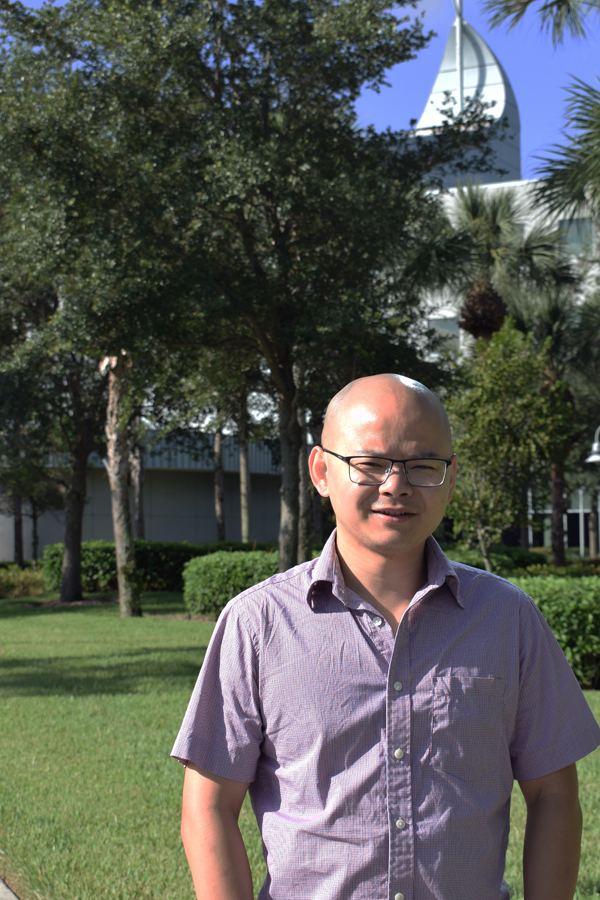A conversation with: Huan Bao, the newest assistant professor at Scripps Research, Florida
Published:
July 29, 2019
Author:
Office of Communications

Tell us a bit about your scientific background and interests.
I did my PhD in Vancouver, at the University of British Columbia, in the Department of Biochemistry and Molecular Biology. At that time, we studied bacteria maltose uptake mediated by an ATP-binding cassette (ABC) transporter. ABC transporters are responsible for the uptake of different nutrients and also, they can cause multi-drug resistance, by exporting the antibiotics out of the cell.
Next, I did my post-doc with Edwin Chapman at the University of Wisconsin and Howard Hughes Medical Institute. We studied the molecular mechanism of neurotransmitter release. We developed a new, ultra-fast measurement system that allowed us to view neurotransmitter release at the single-event level. We can now see more details about how different proteins regulate this process.
The way we could do that was to develop a reconstitution system that could capture the entire process in vitro, using recombinant proteins. This system allows you to more easily and quickly examine the function of individual proteins. Our system can allow anyone to record neurotransmitter and hormone release in vitro, and that’s a basis for drug screening.
What attracted you to join Scripps Research in Florida?
I aim to study how mutations in these proteins alter the release of neurotransmitters and hormones in diseases. The advantage of Scripps is, really the best high-throughput screening center in the United States. In my field, even though neurotransmitter release has been extensively characterized for over 30 years, nobody has ever been able to do the high-throughput screening necessary to identify small-molecules, probably for two reasons. First, we haven’t done all of the basic science yet. Secondly, most labs do not have access to a high throughput screening center. Finally, I’ve never worked on drug discovery. I look forward to learning how translational research is done. I really like the collaborative culture here.
What do you enjoy doing when you’re outside the lab?
Spending time with my family. I have a 2-year-old boy and I really enjoy my time with him. I also enjoy the beach here. My wife is a scientist as well, she doesn’t really work right now, but she will when our son is older.

